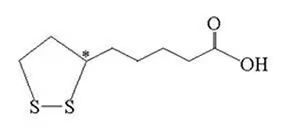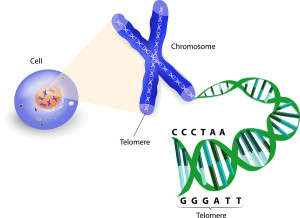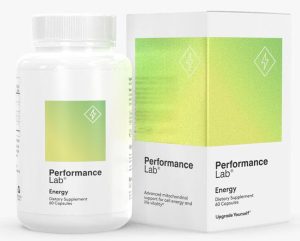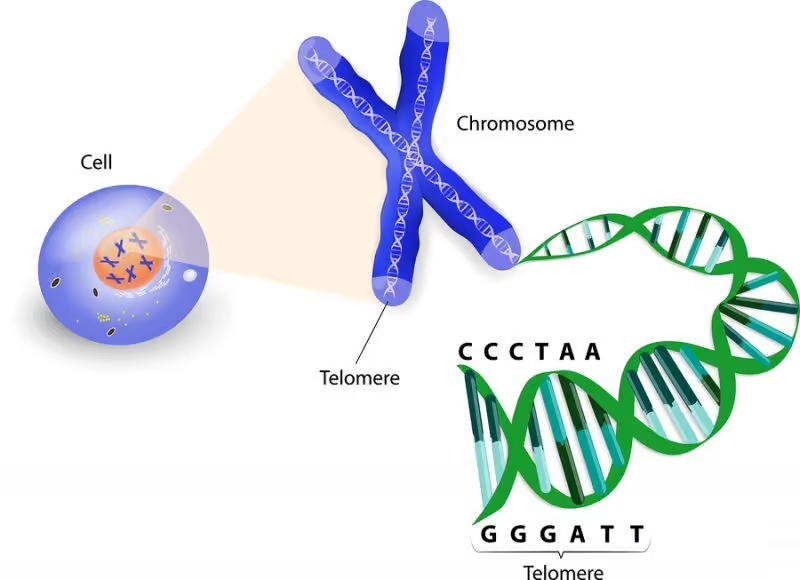Table of Contents
Alpha-Lipoic Acid (ALA) is a sulfur-containing fatty acid naturally found in your body. Lipoic acid is unique among other antioxidants because it is both water- and fat-soluble.
You get small amounts of lipoic acid in your diet from spinach and collard greens, broccoli, beef and organ meats.
But lipoic acid declines in your body as you age. So you need to supplement with Alpha-Lipoic Acid to achieve the levels your body needs to run optimally.
With the unique ability to work in all cell environments, lipoic acid can neutralize free radicals. Damaging free radicals resulting from oxidation in cells is implicated in many types of age-related diseases.
Lipoic acid can navigate cells throughout your body. Which means it can also easily cross the blood-brain barrier.
Alpha-Lipoic Acid has powerful protective benefits against cognitive and neurological diseases like Alzheimer’s, Parkinson’s and depression.
Alpha-Lipoic Acid helps:
- Protect Neurons. Alpha Lipoic Acid has a powerful ability to neutralize the damaging effects of oxidative stress. Studies show lipoic acid even reducing brain damage after a stroke.[i]
- Neurotransmitters. Lipoic acid boosts the production of acetylcholine and glucose uptake in the brain. Showing promise in preventing or managing Alzheimer’s Disease.[ii]
- Brain Energy. ALA regenerates other depleted antioxidants (Vitamins C & E, glutathione), and recycles CoQ10. Reducing inflammation, and getting rid of heavy metals. Boosting cellular energy and memory.
What is Alpha-Lipoic Acid?
Alpha-Lipoic Acid is an antioxidant produced in small amounts in your body. You also get it from eating spinach and collard greens, broccoli, beef and organ meats.

Alpha-Lipoic Acid (ALA) is a unique antioxidant because it is both water- and fat-soluble. Meaning it works in all parts of the human cell. The more lipoic acid you have in your system; the more antioxidant benefits you experience.
You need alpha-lipoic acid’s antioxidant power. Because it regenerates other antioxidants that were depleted by the ongoing fight with free radicals in your cells. It allows you to use the antioxidants Vitamin C & E, glutathione and CoQ10 already in your body over and over again.
In fact, alpha-lipoic acid is so efficient at what it does, it boosts the energy in your cells while reducing inflammation, and getting rid of heavy metals.
In your brain, alpha-lipoic acid boosts the production of the neurotransmitter acetylcholine. And even increases glucose uptake in brain cells. Providing you with a boost of mental energy.
Alpha-Lipoic Acid is used throughout your body. It helps increase insulin sensitivity which reduces the threat of diabetes. And ALA reduces the chances of metabolic syndrome which is associated with cardiovascular disease, diabetes and weight gain.
Alpha-Lipoic Acid vs. S-Lipoic Acid vs. R-Lipoic Acid
Lipoic Acid is also known as Alpha-Lipoic Acid, ALA and Thioctic acid. The Alpha-Lipoic Acid you get as a supplement is usually a 50/50 mixture of R-(natural) and S-(unnatural) enantiomers. They are mirror images of each other and called a ‘racemic’ mixture.
Most commercially available forms of Alpha-Lipoic Acid include the ‘S-form’, or unnatural form of lipoic acid. Chemically synthesized in 1952, and not found in nature.
It is thought that the two enantiomers differ biologically. But much of the research done over the last 30 years has been with the racemic version of Alpha-Lipoic Acid because the R-form was not commercially available.
S-Lipoic Acid (the enantiomer not found in nature) may not produce the most essential benefits of Lipoic Acid. Including interactions with proteins, enzymes and genes.
 R-Lipoic Acid is the form of lipoic acid occurring naturally in the human body, animals, and plants. This is the only form that functions as a co-factor for mitochondrial enzymes involved in energy production.
R-Lipoic Acid is the form of lipoic acid occurring naturally in the human body, animals, and plants. This is the only form that functions as a co-factor for mitochondrial enzymes involved in energy production.
Be aware that most commercially available forms of Alpha-Lipoic Acid include both S- and R-forms of lipoic acid.
Alpha-Lipoic Acid is produced as a mixture because R-Lipoic Acid, when separated from the S-form, is very unstable. And deteriorates very quickly making it unusable as a dietary supplement.
Very few companies go through the complicated, expensive process required to remove the synthetic S-ALA from R-ALA. So unless the bottle specifically states 100% R-ALA, you’re getting a 50/50 blend.
Know that R-ALA may be up to 12 times more effective than S-ALA.
How does Alpha-Lipoic Acid Work in the Brain?
Alpha-Lipoic Acid boosts brain health and function in several ways. But two in particular stand out.
- Alpha-Lipoic Acid boosts acetylcholine, a neurotransmitter tied to memory and overall brain function.
ALA is required for acetylcholine production by activating choline acetyltransferase and increases glucose uptake. This process supplies Acetyl-CoA for the production of acetylcholine.[iii]
- Alpha-Lipoic Acid is a promising weapon in the fight against neurodegenerative diseases like Alzheimer’s.
Oxidative stress plays a key role in cognitive disorders because neurons are highly vulnerable to free radical damage.
A recent study showed that lipoic acid may help slow down the progression of Alzheimer’s Disease. An area where no known cure has been produced by the big pharmaceutical companies.
In this study 43 patients with dementia were given 600 mg of Alpha-Lipoic Acid daily for 4 years. Researchers concluded from this study, “alpha-lipoic acid might be a successful ‘neuroprotective’ therapy option for Alzheimer’s disease.”[iv]
How things go bad
As we get older, our brain chemistry and metabolism changes.
↓ Acetylcholine levels decline
↓ Oxidative (free radical) damage in neural cells
↓ Heavy metal accumulation in cells
All of these age-related changes are contributing factors to the neurodegenerative diseases of aging, including Alzheimer’s, Parkinson’s and dementia. But even if you’re not concerned with the effects of aging, Alpha-Lipoic Acid can help.
Alpha-Lipoic Acid benefits
Research from hundreds of studies have shown that Alpha-Lipoic Acid will:
- Increase the production of acetylcholine
- Improve memory and learning ability
- Restore the health of neurons
- Boost cognitive performance and memory in Alzheimer’s patients.
Alpha-Lipoic Acid is both water- and fat-soluble and quickly crosses the blood-brain barrier after you take it.
ALA improves your brain function and learning processes by directly increasing the production of acetylcholine.
Alpha-Lipoic Acid also helps regenerate depleted antioxidants in your system including Vitamins C and E, glutathione and Coenzyme Q10.
By reducing inflammation and heavy metals in your brain, you boost cognitive processes and fluid thinking.
How does Alpha-Lipoic Acid feel?
Users of Alpha-Lipoic Acid report that supplementing with this nootropic helps with reduce nerve pain, fibromyalgia, better memory and recall and less mental fatigue.
Alpha-Lipoic Acid’s provides brain support because it has the ability to boost acetylcholine. So should boost cognition in all age and gender groups. And it helps transport glucose into mitochondria for the synthesis of ATP giving you a energy boost.
 Your entire body, even your DNA is under endless assault. This assault is caused by everything from poor diet to pollution. And your brain cells are getting hit by free radicals thousands of times per day. This oxidation is damaging your cells.
Your entire body, even your DNA is under endless assault. This assault is caused by everything from poor diet to pollution. And your brain cells are getting hit by free radicals thousands of times per day. This oxidation is damaging your cells.
Antioxidants fight back against these free radicals. When you supplement with Alpha-Lipoic Acid, not only are you using arguably the most effective free radical scavenger on the planet. You’re regenerating antioxidants like Vitamin C & E, glutathione and CoQ10.[v]
And they join the fight against free radicals alongside Alpha-Lipoic Acid.
Alpha Lipoic Acid Clinical Research
Alpha-lipoic acid plays an essential role in mitochondria. The heart of energy-generation in the human cell. Scientists at Emory University School of Medicine found ALA can stimulate telomerase, the enzyme that lengthens telomeres.
The effects of many chronic diseases can be traced back to telomere shortening. (Telomeres are the ‘caps’ on the end of each chromosome in your DNA).
Any treatment that can restore healthy telomeres has great potential in the fight against chronic disease.
 In this study scientists showed Alpha-Lipoic Acid boosted the production of PGC1-alpha. The telomerase that lengthens telomeres. And they did it in just one day of treatment.[vi]
In this study scientists showed Alpha-Lipoic Acid boosted the production of PGC1-alpha. The telomerase that lengthens telomeres. And they did it in just one day of treatment.[vi]
Alpha-Lipoic Acid Reduces Wrinkles
A topical solution of 5% Alpha-Lipoic Acid was applied to the faces of volunteers. This double-blind, placebo-controlled trial showed a reduction in facial lines, almost complete eradication of fine lines, and an overall improvement of skin color and texture in most volunteers.[vii]
Alpha-Lipoic Acid Critical for Cellular Energy
Cellular energy is behind every single action that happens in your body. Including your brain. Cellular energy is required for muscle movement, producing new cells, wound healing and thinking.
The mitochondria in each of your cells is the source of this energy. This ongoing energy production process is call the Krebs Cycle. Alpha-Lipoic Acid is a cofactor to two key enzymatic reactions within the Krebs Cycle.
In the simplest terms, without ALA, cellular energy is not possible. And without cellular energy, well… life is not possible.[viii]
Memory Loss Reversed with ALA and Acetyl-L-Carnitine
Accumulated oxidative damage to brain cell mitochondria eventually leads to neuronal and cognitive dysfunction.
One study on rats showed supplementing with ALCAR and Alpha-Lipoic Acid improved memory. By lowering oxidative damage and improving mitochondrial function.[ix]
Alpha Lipoic Acid recommended dosage
Taking Alpha-Lipoic Acid with a meal decreases it bioavailability. So we recommend taking ALA on an empty stomach (1 hour before eating).
Most Alpha-Lipoic Acid supplements contain a 50/50 mixture of R-LA and S-LA. Supplements claiming to contain only R-LA are often more expensive. And information regarding their purity is not often available.
Peak plasma (blood) concentrations of R-LA were found to be 40-50% higher than S-LA. This suggests that R-LA is better absorbed than S-LA.[x]
The only pre-formulated nootropic stack that I’ve been able to find that uses pure R-LA, and which I use and highly recommend is Performance Lab® Energy which contains 100 mg of the patented Bio-Enhanced® version of R-Lipoic Acid. Which is up to 12-times more effective than other regular alpha lipoic acid supplements.
- Alpha-Lipoic Acid dosage for cognitive benefits is 2- 600 mg per day.
- ALA dosage for neuropathic pain reduction is 800 mg per day divided into two doses.
- Alpha-Lipoic Acid dosing for antioxidant benefits is 50 – 100 mg per day.
Alpha Lipoic Acid Side Effects
Side effects for using Alpha-Lipoic Acid as a supplement are generally rare. But can include diarrhea, fatigue, insomnia and skin rash.
Alpha-Lipoic Acid can lower blood sugar levels. So if you have diabetes or low blood sugar, you should take Alpha-Lipoic Acid under the supervision of your doctor.
Alpha-Lipoic Acid supplementation can lower levels of thyroid hormone. So get your thyroid labs done when using ALA. And adjust your dosage of both ALA and thyroid meds accordingly.
Alpha-Lipoic Acid can lower levels of Vitamin B1 (Thiamine). This can be especially dangerous for alcoholics, or in cases of malnutrition. It would be wise to add Vitamin B1 or Sulbutiamine if your taking ALA.
The chemical structure of Biotin is similar that Alpha-Lipoic Acid. And there is some evidence that ALA can compete with Biotin for transport across cell membranes. This may require higher doses of Biotin if you’re using ALA.
Best type of Alpha Lipoic Acid to buy
 Most Alpha-Lipoic Acid available as a supplement is a 50/50 combination of R-LA and S-LA. S-LA is the synthetic version of ALA and not found in nature.
Most Alpha-Lipoic Acid available as a supplement is a 50/50 combination of R-LA and S-LA. S-LA is the synthetic version of ALA and not found in nature.
R-LA and S-LA are combined because R-LA is highly unstable on its own. And degenerates quickly.
Studies have shown that 30-40% of an oral dose of Alpha-Lipoic Acid is absorbed. Oral ALA supplements are better absorbed on an empty stomach. Taking Alpha-Lipoic Acid with food reduces total plasma (blood) concentrations by about 30%.
The sodium salt version of R-LA may be better absorbed than free lipoic acid, likely because of it higher solubility. And is up to 12-times more effective than other alpha lipoic acid supplements.[xi] I use and highly recommend Click for Performance Lab® Energy .
Nootropics Expert Recommendation
Alpha-Lipoic Acid 50 – 600 mg per day.
I recommend using Alpha-Lipoic Acid as a nootropic supplement.
Your body does make some Alpha-Lipoic Acid on its own. And from the food you eat. But the science is clear that supplemental ALA is a potent antioxidant. And acetylcholine booster.
Alpha-Lipoic Acid can lengthen telomeres which is great for longevity. And neurogenesis (new neuron creation).
ALA also helps regenerate antioxidants already in your system that have been depleted while doing their job. Of getting rid of free radicals in your cells. So you get a double benefit while using Alpha-Lipoic Acid in the antioxidant department.
Alpha-Lipoic Acid is also required for the creation of acetylcholine. Which boosts all cognitive functions including memory, recall, focus and concentration.
ALA is especially helpful for those suffering with diabetes. Studies show it helps relieve diabetic neuropathy or nerve pain. But care must be taken because ALA can lower blood sugar levels. So work with your doctor is using Alpha-Lipoic Acid.
I suggest starting with a dose of 400 mg daily. And work your way up to 600 mg per day. Taken in two doses during the day. Alpha-Lipoic Acid is often stacked with B-vitamins.
I use and highly recommend Click for Performance Lab® Energy .










Join The Discussion - 138 comments
Jahida
October 16, 2020
Child Neurologist prescribed for my boy ALA 100 mg, Piracetam 800 mg, Citicoline 500 mg. From parents discussion I found: “ALA is sulphur based. sulphur breaks down into ammonia in the body. If the child is already having problems with ammonia then the brain will get Ammonia toxicity with the excess Ammonia which is hard to dump. This can have a severe impact on Nrf2. It can shut down & creates havoc on the system. It will deplete BH4. BH4 deficiency gradually leads to full BLOWN PANS too. BH4 impacts vagus nerves & cerebrospinal fluid – so it will play a big role in overall immunity & body’s function. For most kids in spectrum – sulphuration pathways are messed up.” Is is authentic? FYI, my kid’s pee & poo is very stinky. In this case will it be a good decision to give him dose of 100 ALA everyday for 2 months? Looking forward to hearing from you. Thanks
David Tomen
October 17, 2020
Jahida, see my other response to your previous comment. Stay away from ALA. And go with R-Lipoic Acid.
And if your kid’s poo is very stinky I suggest trying a prebiotic which will help correct his microbiome. This is the best one on the market: https://www.performancelab.com/products/prebiotic
Jahida
October 16, 2020
Dear David,
I am new in your site. I have a 5.5 yrs old boy who is struggling to communicate verbally. Actually, he is verbal but non-communicative as he doesn’t understand question. Recently, he is reciting a full song, he is talking all the time while playing. He does lot of Echolalia and Palilalia.
We started Andy cutler Chelation and one of the member/moderator on ACC Parents Group told me- “Most ALA sold nowadays is a mix of r and s isomers. R-ALA is the one to avoid. The studies Andy reviewed utilized RS/ALA and that data is what he based the calculations for half-life on.”
which doesn’t fit with your research. Could you please explain it? I appreciate your time and effort. Kind regards, Jahida
David Tomen
October 17, 2020
Johida, most commercially available forms of Alpha-Lipoic Acid on the market include both S- and R-forms of lipoic acid.
But R-Lipoic Acid is the only form of lipoic acid occurring naturally in the human body, animals, and plants. This is the only form that functions as a co-factor for mitochondrial enzymes involved in energy production.
R-ALA you likely want to avoid. What you are looking for is a supplement that is R-Lipoic Acid. For example, the patented Bio-Enhanced® Na-RALA is the sodium salt form of R-Lipoic Acid. Which works. You can get it in Performance Lab Energy: https://www.performancelab.com/products/energy. Or Doctor’s Best makes a standalone version of it here: https://amzn.to/3nY7N1r
Prisca
October 13, 2020
“A topical solution of 5% Alpha-Lipoic Acid was applied to the faces of volunteers. This double-blind, placebo-controlled trial showed a reduction in facial lines, almost complete eradication of fine lines, and an overall improvement of skin color and texture in most volunteers.”
Can you advise a place to purchase a topical solution? Or could I make one by breaking open a tablet and mixing it myself? Have you ever tried this yourself?
David Tomen
October 14, 2020
Prisca, the study you are referring to was done at a university in Cairo. I imagine if you could find a copy of the entire study you would see mentioned any affiliation to company sponsorship. Which would be a place to start.
I’d also try doing a search for “Alpha Lipoic Acid AND “skin care” and variations on that theme. You might run into some product already using ALA in their skin care formula.
I’ve never tried it. But you could open a capsule and dump it into a facial cream you already use. And see if that works.
G Remy
January 27, 2020
Hi David – I have read and heard that ALA binds to the mercury the your system has stored away and works on removing it – however the problem arises because ALA has a short half life (3/4 hours) and so it will drop the mercury in your system before it has a chance to actually remove it from your system. The person in this video explains it the best. What are your thoughts on this redistribution of mercury?
https://youtu.be/SYUR5UJEhME
David Tomen
January 28, 2020
Actually a dose of oral R-Lipoic Acid is detected in the bloodstream up to 4 hrs. after taking the supplement: https://www.ncbi.nlm.nih.gov/pmc/articles/PMC6723188/. Which would put the half-life at around 2 hours.
If someone has high concentrations of heavy metals including things like mercury in their system, the key is using ‘normal’ 100 or 150 mg of R-Lipoic Acid and dose it 3-times per day.
That will provide the nootropic benefit of R-Lipoic Acid and should gently remove heavy metals without leaving a lot running around in your bloodstream.
Eric WESSON
December 10, 2019
Thank you David for your work. Blessed by the wealth of information you provide.
Eric W
cis
September 30, 2019
What about the concerns about taking ALA when someone has “silver” fillings?
David Tomen
September 30, 2019
Cis, Alpha Lipoic Acid is a heavy metal chelator. But you naturally already have some lipoic acid in your body which continually acts as a chelator. Same goes for several natural substances we use as nootropics.
At standard recommended dosages I’ve not noticed a problem. And have not seen any hard evidence such as clinical trials to show we need to worry about using Alpha Lipoic Acid if we have amalgam fillings in our teeth.
Seems to me a bigger worry is the fillings themselves which should be removed to prevent further toxicity in the body and brain.
Eric
September 22, 2019
David, I have been using weight training for fitness and anxiety/depression issues for years, and read some time ago a recommendation to use ALA with creatine as it helps with creatine uptake. Apparently this has to do with it’s similarity insulin like growth factor. This is how I recall the information, and may not be completely accurate, but it was something along these lines.
As you recommend both ALA and creatine you might be interested in this.
Also, I was surprised to learn that lithium is a metal, I guess that I never really thought about it. Does ALA interfere in any way with lithium orotate? Magnesium glycinate? I recently began using them as an anxiolytic and am amazed with the results, for which I very grateful to you.
I use both creatine and ALA, along with glutamine and arginine AKG (alpha keto-glutarate) on workout days. I also take lysine in hopes that it will mitigate shingles, which is a form of the herpes virus caused by chicken pox.
David Tomen
September 22, 2019
Eric, Lithium Orotate is not contraindicated with anything that I’m aware of. Each dose is only 5 mg of elemental lithium. So it doesn’t even show up on blood tests. But wow, does it work.
cis
September 30, 2019
My understanding is that lithium can worsen thyroid function
David Tomen
September 30, 2019
Cis, you are correct that studies have shown that lithium carbonate increases iodine content within the thyroid, inhibits the coupling of iodine to form T4 and T3, and inhibits release of T4 and T3. But the studies that I’ve seen are talking about high doses of lithium carbonate used to treat Bipolar Disorder. Where lithium is measurable in blood tests.
Lithium Orotate dosage provides only 5 mg of elemental lithium which doesn’t even show up on blood tests. But is very effective. And shouldn’t have a negative effect on the thyroid and T4 or T3. But my personal experience is if you use higher than recommended doses of Lithium Orotate it will have a negative impact on the thyroid. Especially if you are hypothyroid.
austin
August 21, 2019
Is it alright to supplement this from flax seed oil?
David Tomen
August 22, 2019
Austin, I have no hard evidence of this but I would think they compliment each other.
austin
September 9, 2019
The doses from one tablespoon of ALA from flaxseed oil is in the grams.
Is that dose too high ?
David Tomen
September 11, 2019
Austin, flax seed contains alpha-linolenic acid (ALA) and NOT alpha lipoic acid. You can get Alpha Lipoic Acid from from eating spinach and collard greens, broccoli, beef and organ meats or in a capsule. But not flax seed.